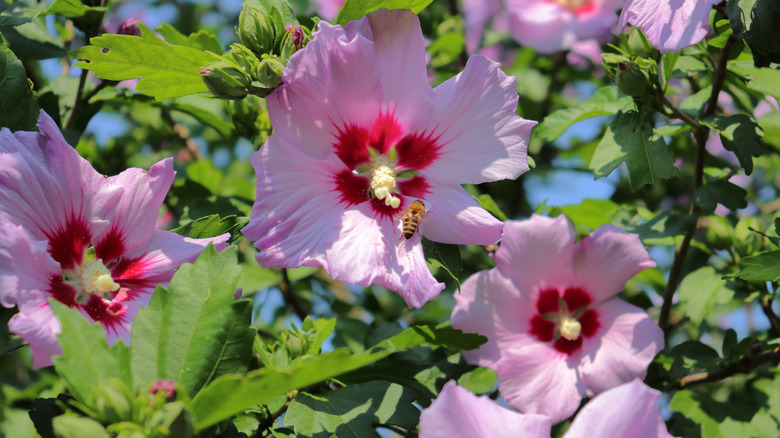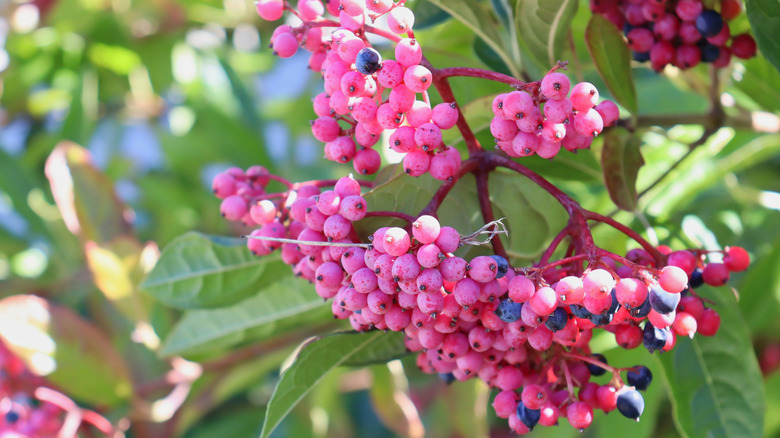Rose Of Sharon Plants Are Beautiful, But Should Never Be Planted In These US States
Native to China and India, rose of Sharon (Hibiscus syriacus) is a popular plant choice for many homeowners who like to use it for hedges, yard borders, and ornamental focal points in gardens. However, while it is undeniably beautiful, there are a handful of places in the United States where it is considered an invasive plant that you should never grow. Kentucky, Pennsylvania, Virginia, and Tennessee have all raised red flags about the rose of Sharon plant's aggressive growth and self-seeding behavior. This flowering shrub is known to escape private gardens and start growing in natural habitats, where it can monopolize sunlight, nutrients, and space. This may not seem bad until you realize that dense thickets of Rose of Sharon may crowd out native vegetation and become a serious problem for local ecosystems that need native plants to support birds and other wildlife.
Rose of Sharon plants are easily spread in unmanaged areas by the wind, which helps disperse the seeds that enable the plant to colonize everywhere from forest edges to roadside hills. While it is not flagged on a federal level, gardeners and homeowners everywhere should still be mindful of its behavior — because even where it is not officially listed as invasive, rose of Sharon can still become a maintenance issue if not managed properly. You can try clever ways to keep invasive plants from spreading in your garden, but if you live in Kentucky, Pennsylvania, Virginia, or Tennessee, you should plant alternatives instead.
Maintaining rose of Sharon and what to plant instead
There are some simple maintenance steps that can help prevent your rose of Sharon's seed pods from becoming over-abundant, such as deadheading. Deadheading, the process of removing faded flowers before they can form the seeds that will spread throughout your garden and beyond, will help minimize the impact this plant will have on the environment. Pruning in late winter or early spring to keep the plant in your desired shape is also helpful. But if you live in a state where rose of Sharon is considered invasive, you should only plant sterile, seedless cultivars of this plant. And since rose of Sharon offers less ecological value to native wildlife, it might be a good idea to consider alternative options — whether or not you live in an area that already cautions against it.
So what can you plant instead? There are a ton of native, low-maintenance flowering plants that will thrive in the sun just like rose of Sharon and be just as beautiful. For starters, try a native hibiscus like the swamp rose mallow (Hibiscus moscheutos), which provides large, colorful flowers while also supporting local pollinators and supporting their ecological roles. Another great alternative is possum-haw (Viburnum nudum), known for its dark green leaves that turn a blend of red and purple in the fall. It provides pollen for native bees and fruit for birds. Choosing native flowering shrubs like these not only helps prevent the spread of invasive species, but it also helps preserve local habitats while making personal landscaping less worrisome. Sounds like a win-win all around.

